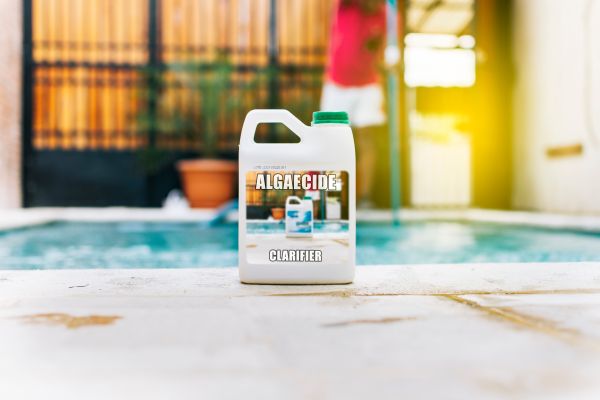Connect with a verified veterinarian in minutes. Licensed vets are available 24/7 to answer your questions. No need to worry about your furry family member.
Do you grow lemongrass in the garden? Has your dog eaten it every once in a while? Then you’ll probably want to read this and learn if lemongrass is safe for your canine companion or not!
What is Lemongrass?
Lemongrass is an herb that smells very similar to a lemon. It looks somewhat like a green onion, with a long leafy top and white bottom. The scientific name of this herb is Cymbopogon citratus. This is a plant that’s common to Southeast Asia and is commonly used in Thai cooking.
Cymbopogon nardus is also known as holy basil, lemon grass, or citronella grass. This herb is commonly used in Thai cooking and has a lemony, grassy flavor.
Lemongrass can be used either fresh or dried. Some people say that dried lemongrass tastes more woodsy. However, it is tangy and has a hint of ginger. It can be used in soups or other dishes that are simmered.
Lemongrass contains a compound called citral. This compound is responsible for the herb’s lemon-like smell. Lemongrass also contains thujone, which is a compound that can give the herb a slightly bitter taste. Chamomile, lavender, and rosemary also contain thujone.
Cyanogenic glycosides are also found in lemongrass. These compounds can release cyanide when they are broken down. Therefore, it is important to be careful when handling lemongrass if you are pregnant or have a child with a sensitivity to cyanide. The enzymes that are responsible for breaking down the cyanogenic glycosides are destroyed by heat. Therefore, it is not recommended to cook with lemongrass in a dish that will be served hot.
Eucalyptus is also found in lemongrass essential oils. This is a volatile oil that can give the herb a scent that is similar to peppermint. Poaceae is the family that includes lemongrass. Rosemary, thyme, and lavender are also members of this family.
Lemongrass can be used fresh or dried. Fresh lemongrass can be used in soups or other dishes that are simmered. Dried lemongrass can be used in the same way, but it may need to be reconstituted before use. Lemongrass can also be mixed with other herbs and spices to create your own blends.
Lemongrass is mainly used to flavor food, but it can also be used as a natural remedy for a variety of ailments. It is thought to help improve digestion, relieve pain, and soothe the skin. Soaps, carrier oil, tea tree oil, wintergreen oil, and lavender oil are all ingredients that can be used in conjunction with lemongrass to treat various skin conditions. Some people also use lemongrass to help clean the air of pollutants. Lemongrass is high in essential oils, which can help to disinfect the air.
Shampoos and conditioners that contain lemongrass are often used to treat dogs with allergies. Lemongrass is thought to help reduce the symptoms of allergies, such as itchy skin and sneezing. It can also be used to treat other conditions, such as coughs and colds. However, it is important to speak with your veterinarian before using lemongrass in a dog’s diet.
Lemongrass Essential Oil
The essential oil of lemongrass is also used in aromatherapy. Lemongrass oil is used to treat anxiety, colds, coughs, flu, headaches, muscle aches and pain, PMS, and stress. It is also said to be helpful in clearing skin issues such as acne and eczema. Citronella oil is also said to be helpful in repelling mosquitoes. Lemongrass plant is also an insect repellent because of the citronella oil that it contains.
Lemongrass oil is also used in aromatherapy and perfume. You can use a diffuser to put it in the air or use it in a massage. The citral, linalool, and geraniol are the main components of lemongrass oil.

Review symptoms, medications & behavior to keep your pets healthy with a Vet Online in just minutes.
Ask a Vet Live NowLemongrass & Dogs
According to the ASPCA, lemongrass is toxic to dogs. If a dog eats a large amount of this herb, he can be come very sick. You may notice these symptoms if your dog has eaten lemongrass:
- Abdominal pain
- Bloated abdomen
- Fever
- Constipation
- Loss of appetite
- Shock
- Vomiting
Another issue that can develop is an intestinal blockage. This is a life-threatening medical emergency and could be caused by a dog who ate a lot of lemongrass. Because lemongrass is fibrous, it could become lodged in the dog’s intestine.
If you know or suspect that your dog has eaten lemongrass, it’s a good idea to call your vet right away. This may not be a medical emergency, but your dog will need to be treated as soon as possible.
Is lemongrass safe for dogs?
A simple answer is no, it is not safe for dogs. However, there is no definitive answer as to whether or not lemongrass oil is safe for them. Dogs are not herbivores and so may not be able to properly digest lemongrass oil. Your pet’s health is your responsibility, so be sure to consult with a vet before using any type of herb or oil on your dog.
Is lemongrass oil safe for dogs?
There is no definitive answer to this question. Some people say that lemongrass oil is safe for dogs, while others say that it should not be used on dogs because it can be irritating. If consumed in large quantities, lemongrass oil can be harmful to dogs. The digestive system of a dog is not as developed as that of a human, so they may not be able to process it properly.
Lemongrass Poisoning in Dogs
If your dog ingests lemongrass, they may experience vomiting, diarrhea, and panting. If the ingestion is severe, your dog may experience seizures, liver failure, and even death. If you think your dog has ingested lemongrass, call your veterinarian immediately.
Lemongrass poisoning is a serious condition that can be life-threatening to your dog. Your dog might drools, have a decreased appetite, and be lethargic. If you think your dog has ingested lemongrass, call your veterinarian immediately.
Treatment of Lemongrass Toxicity in Dogs
The vet will perform a physical exam of your dog, and then will run lab work. They may also do an x-ray to check your dog for an intestinal blockage.
When it comes to treatment, the type of treatment will depend on your dog’s symptoms. For instance, the vet may give your dog an IV with fluids to help your dog rehydrate. They may also be required to perform surgery if your dog has an intestinal blockage.
As you can see, lemongrass can be very bad for dogs. If you have lemongrass in your garden, you may need to move it to another part of the yard your dog can’t access. While this is unpleasant, it’s even worse if your dog becomes very sick from eating lemongrass.
Connect with a verified veterinarian in minutes. Licensed vets are available 24/7 to answer your questions. No need to worry about your furry family member.

Julie
Julie is a graduate of the University of North Carolina, Wilmington, where she studied Animal science. Though contrary to the opinion of her parents she was meant to study pharmacy, but she was in love with animals especially cats. Julie currently works in an animal research institute (NGO) in California and loves spending quality time with her little cat. She has the passion for making research about animals, how they survive, their way of life among others and publishes it. Julie is also happily married with two kids.
Review symptoms, medications & behavior to keep your pets healthy with a Vet Online in just minutes.
Ask a Vet Live Now





